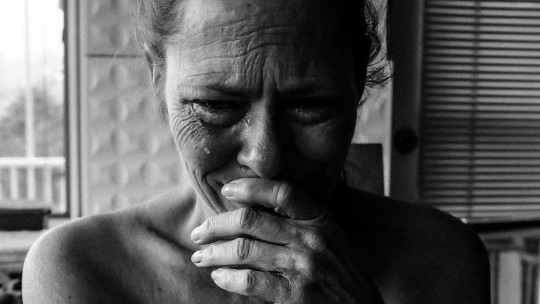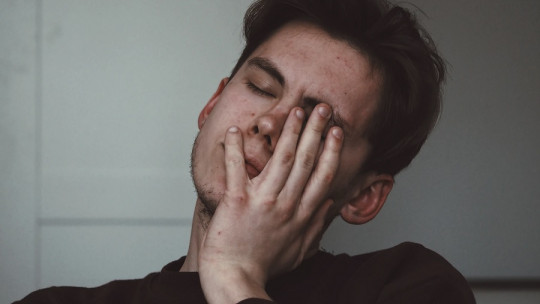
Depression is a mood disorder that manifests itself differently depending on the person’s age, as it conditions many of our habits and characteristics. In this article we will see what depression is like in adults and how it can be treated with the help of professionals.
And precisely because this psychological disorder is expressed through our ability to enjoy life, its symptoms manifest differently depending on the person’s age, since this conditions many of our habits and characteristics. In this article We will see what depression is like in adults and how it can be treated with the help of professionals
What is depression like in adults?
Depression in adults is a relatively common mood disorder, and in fact It is estimated that it affects about 200 million people around the world
The symptoms, among many others, by which it is characterized are basically avolition (extreme lack of motivation and lack of energy to do most of the daily activities necessary to live well, such as cooking, showering, going out to work, etc.), anhedonia (inability to experience pleasure) and an intense feeling of sadness, melancholy or hopelessness.
Besides, The adult population is more flexible when it comes to finding strategies to communicate what they feel so age also brings diversity in the way of verbalizing the problem and explaining it to friends, family and mental health professionals.
The help of psychologists: treatment of depression in adults
These are some of the main strategies that psychologists use to perform psychotherapy in cases of depression in adults.
1. Act on ideas and behavior patterns
Psychology centers with a more effective proposal when it comes to treating depression in adults use tools that allow them to intervene both in the way in which the patient perceives and interprets reality, as well as in the set of actions they usually use to interact. with the environment and with others.
For example, The Psicomaster psychology center, located in the center of Madrid, offers several types of related therapy that allow you to do this: Cognitive-Behavioral Therapy, Acceptance and Commitment Therapy and EMDR.
The first is one of the most used forms in psychotherapy to intervene in many mental disorders, and focuses on a double path of improvement: help the person learn healthier and more useful behavior patterns so as not to reinforce the presence of the mental disorder through interaction with what surrounds us, and to modify the ideas and beliefs strongly rooted in the patient and that prevent them from perceiving reality in a constructive and emotionally balanced way.
For its part, when Psicomaster uses Acceptance and Commitment Therapy, the objective is also to influence actions and thoughts and beliefs, but adapting treatment to the context in which each individual patient lives and helping them to accept the imperfection of many aspects of life and what it means to exist in it, so that they contribute to changing what can be solved and learn to embrace the imperfections that cannot be changed or do not depend on us. .
In this way, ways of thinking, feeling and acting that cause the symptoms of depression in adults to occur over and over again are unlearned, and other habits are learned that allow us to live better.
2. Patient activation
It is very important for the adult patient to get out of the dynamics of passivity and sedentary lifestyle habits in which they have settled due to depression. Therefore, it is usually used a set of strategies called Behavioral Activation which aims to create the necessary situations and contexts for the patient to commit to engaging in stimulating activities with the ability to involve the whole body.
The idea here is not to have blind faith in the person’s willpower and hope that motivation will serve to mobilize them and engage in hobbies, but to do something so that the patient is more exposed to stimulating situations with the ability to generate interest and “get him hooked” on a task or set of tasks: going out to the park to play sports, taking care of a garden, walking around unknown areas of the city, etc.
3. Work with family and close circle
Another course of action undertaken in specialized centers such as Psicomaster has to do with networking with the patient’s family and close environment No matter how much the person affected by depression in adults has already left childhood behind, the role of their loved ones is still very relevant, among other things because the disorder itself causes them to lose autonomy.
The fact that psychologists coordinate with the patients’ families helps those who suffer first-hand from depression to continue to have support and a guide to action once they have left the consultation, between psychotherapy session and treatment session. psychotherapy.
Thus, specialists inform families about how to live with an adult with depression how to treat the presence of the pathology in conversations, what types of actions to follow to help the person keep moving and get involved in relationships with others, etc.
4. Intervention on anxiety sources
It is very common that depression in adults does not appear in isolation, but rather arises at the same time as other harmful psychological disorders. Anxiety disorders and the experience of psychological trauma are part of the most frequent psychological phenomena that overlap with extremely low mood, and many times what causes depression has to do with these other problems.
For this reason, in well-equipped psychology centers like Psicomaster, there are professionals who are experts in treating all these types of disorders that overlap with each other. For example, If depression is linked to psychological trauma, EMDR therapy may be used or systematic desensitization to make the source of discomfort through which the trauma manifests disappear, while intervening in the depression itself.
Conclusion
Depression in adults is a mood disorder that is complex in the way it is expressed in patients, and Due to its potential to erode people’s quality of life or even encourage suicidal ideations, it deserves to be treated by professionals
No matter how much we have been educated to assume that adult life is full of difficult moments and sacrifices, depression is a very serious pathology that cannot be normalized. The sooner you act when detecting the first symptoms, the better.








